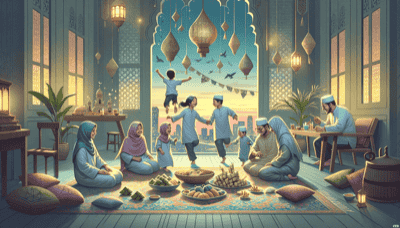We're here to help you keep count of the days to or since a date. Just click the button below and enter your chosen date to get started. Also choose the suggested days or search for a special day above #countingthedays

Eidul Fitr, also known as Eid al-Fitr or the "Festival of Breaking the Fast," is a significant religious holiday celebrated by Muslims worldwide to mark the end of Ramadan, the Islamic holy month of fasting. In the Philippines, where Islam is the second-largest religion, this day is a national holiday, reflecting the country's respect for its Muslim citizens and their faith.
Eidul Fitr was established by the Prophet Muhammad and has been celebrated by Muslims for over 14 centuries. The Philippines officially recognized Eidul Fitr as a public holiday with Republic Act No. 9177, which was signed into law on November 13, 2002. The declaration was part of the government's effort to foster peace and understanding between Muslims and Christians in the country.
On this day, Filipino Muslims engage in traditional practices such as:
People dress in their best clothes and often begin with an early morning cleansing known as "ghusl," followed by a small breakfast before heading to prayer—a contrast to Ramadan's dawn-to-dusk fasting.
During Eidul Fitr in the Philippines:
The atmosphere is generally one of joy and gratitude for having completed a month of fasting and spiritual reflection. Despite being predominantly Christian, many non-Muslim Filipinos are aware of Eidul Fitr celebrations due to its national holiday status, leading to broader cultural understanding.